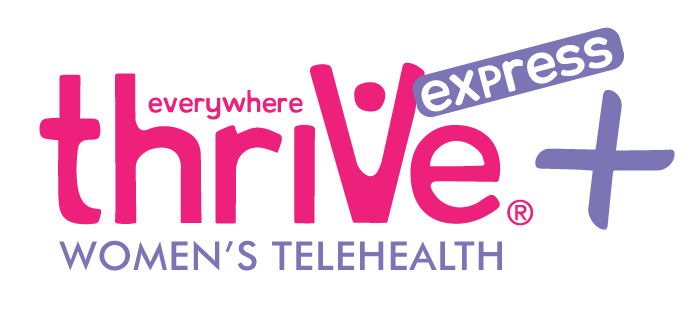This blog was updated April 2025
What is Plan C? Plan C is a term that refers to the abortion pill — and sometimes a person might be able to access this medication abortion without talking with a doctor first. This could be dangerous to your health. Let’s explore what Plan C, or the abortion pill, is all about.
What is Plan C, and why might someone consider it?
Plan C, also known as the abortion pill, is a way to end a pregnancy. In recent years, the abortion pill has become more available to women through online pharmacies or after a telehealth consultation — without having been seen by a doctor and having an ultrasound to confirm the pregnancy.

There are different reasons that people might consider getting the abortion pill online.
- Maybe they don’t want others to know about the pregnancy.
- Maybe they’re worried about the cost of an appointment.
- Or maybe it just seems like the easiest solution to their situation.
But are there risks to taking this medicine without a doctor’s visit?
If you’re wondering, “What is Plan C,” or “medication abortion,” here’s more about how it works, its side effects, and risks that are important to know about. You may have heard about the cramping and bleeding that’s associated with medication abortion, and want more info. Let’s get to it.
How does the abortion pill work?
The abortion pill is two medicines called mifepristone and misoprostol. When used together, they can end a pregnancy up to 10 weeks along. The abortion stops the hormones that support the pregnancy. Without this, the uterus can no longer support the pregnancy.1 Misoprostol causes contractions to empty the uterus.2 But does it come with risks?
What are some side effects of the abortion pill?
Using the abortion pill can lead to side effects. We’ve answered, “what is Plan C?” but what are the side effects? Here are some things to know about them:
1. Bleeding: After taking the abortion pill, you can expect to have bleeding. This bleeding is usually heavier than a regular period and can last for several days or even weeks.2
2. Cramping: You may experience strong cramps in your lower abdomen.2
3. Nausea and Vomiting: Some people may feel nauseous or even vomit after taking the abortion pill.2
4. Diarrhea: Diarrhea can also occur as a side effect.2
5. Emotional Reactions: What is Plan C when it comes to your emotions? People might experience a wide range of emotions during and after a medication abortion. Some people may feel sadness or regret. Having emotional support from friends, family, or a counselor can be helpful. ThriVe has confidential and compassionate abortion after care available.
6. Risk of Infection and Other Rare Complications: There is a risk of infection and other complications that would require you to seek immediate medical attention.2 That’s why it’s essential to follow all the instructions provided by your healthcare provider and to have a follow-up appointment to ensure everything is progressing as it should.
Some women will need a surgical procedure after taking the abortion pill because the pregnancy did not completely pass from the uterus, or to stop bleeding.2
Are there risks if someone tries a DIY abortion without medical guidance?
Yes, there are risks involved in attempting a DIY abortion without proper medical supervision. In fact, the FDA does not recommend buying Mifepristone online at all. It’s crucial to understand these risks:
- Incomplete Abortion: One of the significant risks is having an incomplete abortion. This means that not all of the pregnancy tissue comes out of the uterus. If this happens,this can lead to infection or other complications. It may require additional medical procedures to complete the abortion safely.2
- Ectopic Pregnancy: What is Plan C, and can it be used in ectopic pregnancy? The abortion pill cannot treat ectopic pregnancies, which occur when the fertilized egg implants outside the uterus, usually in the fallopian tube. Ectopic pregnancies can be life-threatening. If someone tries the abortion pill without knowing they have an ectopic pregnancy, it could be extremely dangerous. Seeking a medical consult first, with an ultrasound, is the only way to rule out an ectopic pregnancy.
- Heavy Bleeding: The abortion pill can cause heavy bleeding, which can be distressing and, in some cases, may lead to anemia, a condition where the body doesn’t have enough healthy red blood cells to function properly.2
- Emotional Impact: DIY abortions can be emotionally challenging, and going through the process alone or without proper support can be distressing.
- Lack of Medical Monitoring: When using the abortion pill under medical supervision, healthcare providers can monitor your health and provide guidance throughout the process. Without this oversight, one’s health can be put at risk.
The FDA does NOT recommend buying the abortion pill online.3 It might not meet the FDA’s safety, efficiency or quality requirements for medications.
Attempting a DIY abortion carries significant risks to both physical and emotional health. If you’re asking, “What is Plan C?” and want more info on the risks, come chat with us at ThriVe
Why is it important to consult a medical professional before using the abortion pill?
- A medical professional can help you know how many weeks of pregnancy you have
Consulting a doctor or healthcare provider is VERY important because a doctor can help determine whether it’s safe for you to take the abortion pill at this stage in the pregnancy.
The FDA says that the abortion pill should only be used until the 10th week of pregnancy.3 Sometimes you might not know how long you’ve been pregnant, or you may have irregular periods.
Having an ultrasound can give you an accurate idea about how long you’ve been pregnant, so you can make safer decisions about your future.
- A medical professional can check for ectopic pregnancy
Like we mentioned earlier, ectopic pregnancies can be life-threatening — and most people don’t know that they have an ectopic pregnancy until they visit their doctor and have an ultrasound.4
If you’re wondering “What is Plan C?”, it’s CRUCIAL to rule out an ectopic pregnancy before taking the abortion pill.
- A medical provider can check for STIs
It’s important to have an STI check before an abortion. Many STIs (sexually transmitted infections) don’t show any symptoms, and can only be detected with an STI test.5 Bacteria can enter the reproductive tract during an abortion, and that can lead to conditions like pelvic inflammatory disease (PID). PID can cause chronic pain, permanent damage to the reproductive system, and problems getting pregnant in the future when a woman is ready.5
Here at ThriVe, we offer no-cost STI tests as part of a pre-abortion screening.

Know the facts so you can make safer choices
There are many reasons why a person might consider taking the abortion pill, and situations where they need to seek guidance from a medical professional. Know your options to keep yourself safe.
- ThriVe offers no-cost pre-abortion screenings — so you don’t have to worry about the price of a doctor’s visit.
- Your visit to ThriVe is confidential. We take your privacy seriously.
- Making an appointment is quick and simple. Just contact us.
So “What is Plan C?” Well, it’s all about the abortion pill — but there are important things to know before you decide to get it online or when to see a medical professional.
Know the facts. Protect yourself. You are the best person to make decisions about your future and pregnancy options, and we want to make sure you have the information you need. We’re here to support you with accurate information so you can make empowered decisions.
Sources:
1https://www.mayoclinic.org/drugs-supplements/mifepristone-oral-route/description/drg-20067123
2https://www.accessdata.fda.gov/drugsatfda_docs/label/2023/020687Orig1s025Lbl.pdf#page=16
3https://www.fda.gov/drugs/postmarket-drug-safety-information-patients-and-providers/information-about-mifepristone-medical-termination-pregnancy-through-ten-weeks-gestation
4https://www.mayoclinic.org/diseases-conditions/ectopic-pregnancy/symptoms-causes/syc-20372088




